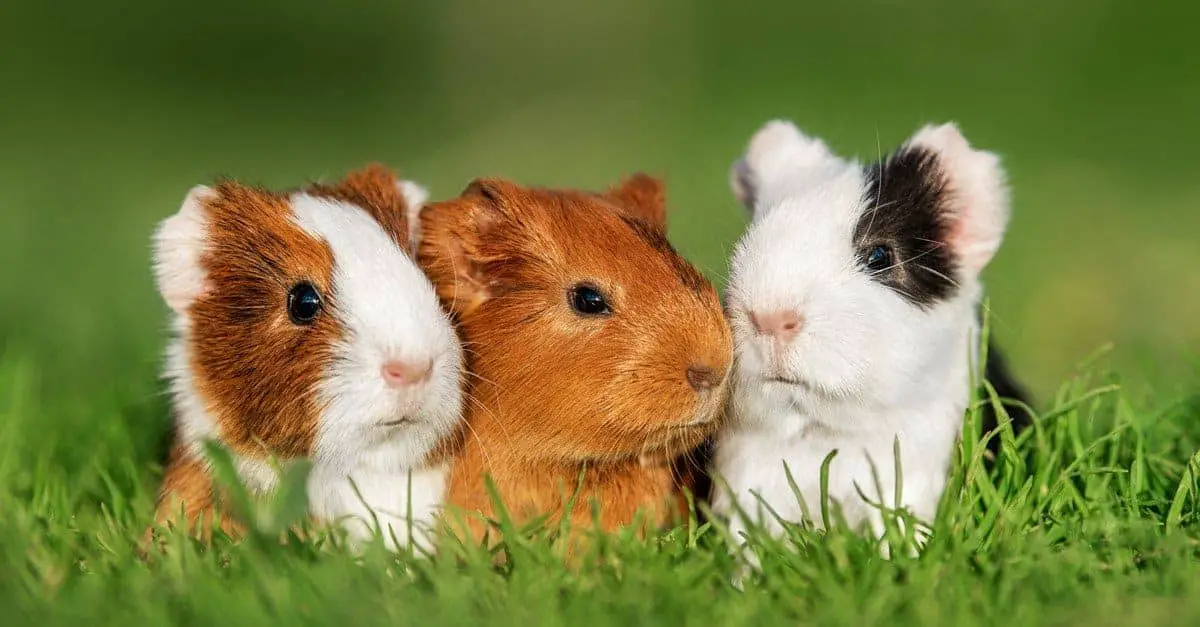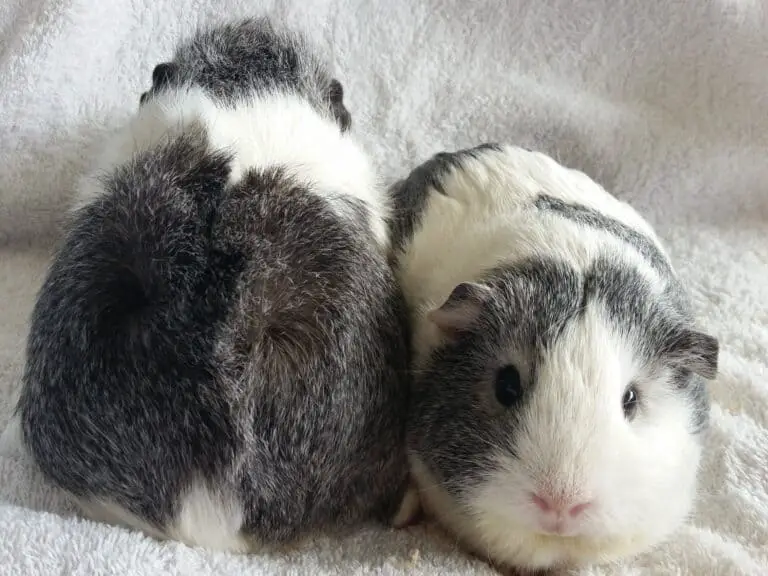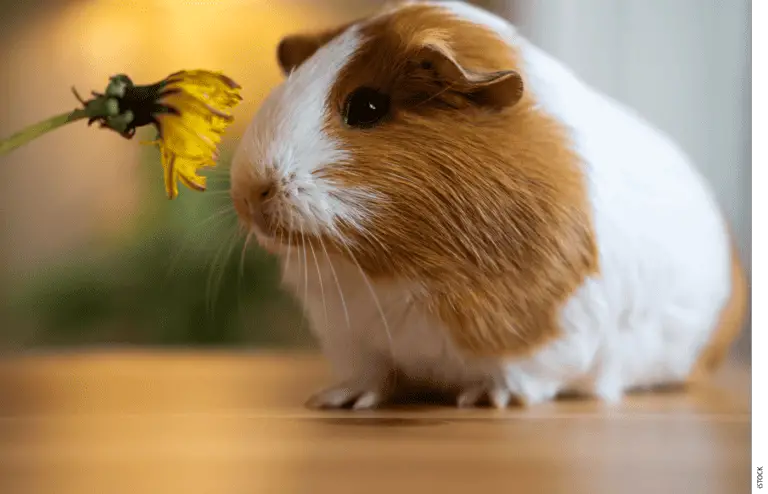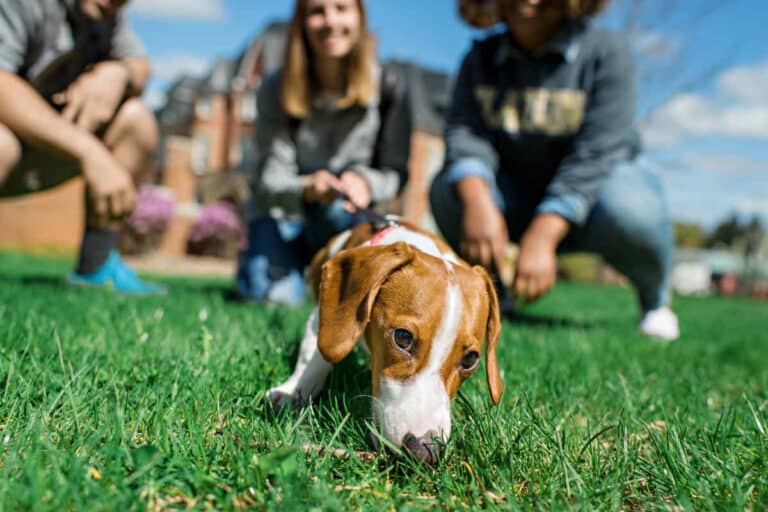Is it Safe for Rats to Eat Guinea Pig Food? Here’s What You Need to Know
If you own both a rat and a guinea pig, you may be tempted to give them the same food to save time and money. However, is it safe for rats to eat guinea pig food? In this article, we will explore the nutritional needs of rats and guinea pigs, the dangers of feeding guinea pig food to rats, and the alternatives to guinea pig food for rats.
Can Rats Eat Guinea Pig Food?
Understanding the Nutritional Needs of Rats and Guinea Pigs
Rats and guinea pigs are both rodents but have different nutritional requirements. Rats are omnivores, which means they require a balanced diet of protein, fat, and carbohydrates. In contrast, guinea pigs are herbivores and need a diet high in fiber and Vitamin C.
Dangers of Feeding Guinea Pig Food to Rats
Feeding guinea pig food to rats can be dangerous as guinea pig food does not meet the nutritional requirements of rats. Guinea pig food is low in protein and fat, which are essential for a rat’s growth and overall health.
Alternatives to Guinea Pig Food for Rats
If you want to provide your rats with a balanced diet, it is best to give them food formulated for rats. Commercial rat food pellets are available in pet stores and are designed to provide the nutrients rats need. Alternatively, you can make homemade rat food using healthy fruits and vegetables, as well as protein sources like cooked chicken or tofu.
What Foods Are Best to Feed Rats?
Commercial Rat Food Pellets
Commercial rat food pellets are an easy and convenient way to ensure your pet rats get the nutrients they need. These pellets are formulated to provide a balanced diet, so you don’t have to worry about your rats missing out on any essential nutrients.
Healthy Fruits and Vegetables for Rats
In addition to pellets, rats also enjoy a variety of fruits and vegetables. Offer your rats fresh fruits like bananas, apples, and grapes, and veggies like carrots, cucumber, and leafy greens. Just take note that fruits have a high sugar content, so feed them in moderation.
Protein Sources for Rats
Rats require protein in their diet for growth and development. Good sources of protein include cooked chicken, fish, tofu, and eggs. You can also feed them insects like mealworms, crickets, and grasshoppers.
Can Rats and Guinea Pigs Live Together?
Understanding the Differences Between Rats and Guinea Pigs
While rats and guinea pigs are both rodents, they have different needs and behaviors. Rats are social animals and thrive in groups, while guinea pigs prefer to live in pairs or small groups. Rats are also more active and need more space to move around compared to guinea pigs.
Potential Risks of Keeping Rats and Guinea Pigs Together
While rats and guinea pigs can coexist peacefully, there are risks involved in keeping them together. Rats may view guinea pigs as food, and there is a risk that they may attack them. Additionally, guinea pig food does not meet the nutritional requirements of rats, which can lead to health problems.
Alternatives to Keeping Rats and Guinea Pigs Together
If you want both rats and guinea pigs as pets, it is best to give them separate living spaces. This way, you can provide each animal with the appropriate living environment and food. If you want them to interact, you can do supervised playtime in a neutral area.
What is The Best Diet for Pet Rats?
Nutritional Requirements for Rats
A balanced diet for pet rats should consist of a mix of commercial rat food pellets, fresh fruits and veggies, and protein sources. Rats also need access to clean drinking water at all times.
Commercial Rat Food vs. Homemade Rat Food
While both commercial and homemade rat food can provide the necessary nutrients, commercial rat food pellets are more convenient and can ensure your rats get the right balance of nutrients. Homemade rat food requires careful planning and monitoring to ensure it meets your rat’s specific nutritional requirements.
Foods to Avoid Feeding Rats
While rats can eat a variety of foods, there are some foods that you should avoid feeding them. Foods high in fat and sugar can cause obesity and dental problems, while raw beans and potatoes can be toxic to rats. Additionally, avoid feeding your rats dog or cat food, as they are not formulated for rats and may lack the nutrients rats need.
Can I Feed My Rats Hamster and Gerbil Food?
Understanding the Nutritional Differences Between Hamsters and Rats
Hamsters and gerbils have different nutritional requirements than rats. Hamsters and gerbils are omnivorous but require a lower protein diet compared to rats. Additionally, both species have different vitamin and mineral requirements.
The Risks of Feeding Hamster and Gerbil Food to Rats
Feeding your rats hamster or gerbil food may not meet their nutritional needs and can lead to health problems. Lower-end dog food may also lack the nutrients rats require.
Alternatives to Hamster and Gerbil Food for Rats
It is best to feed your rats food formulated specifically for rats. This will ensure they get the right balance of nutrients they need. Additionally, you can feed them fresh fruits, veggies, and protein sources like cooked chicken or tofu to add variety to their diet.
In conclusion, rats and guinea pigs have different nutritional requirements, and it is not safe to feed guinea pig food to rats. The best way to ensure your rats get the necessary nutrients is to provide them with commercial rat food pellets or a homemade diet with healthy fruits, veggies, and protein sources. It is also important to keep rats and guinea pigs in separate living quarters to avoid any health problems. “







